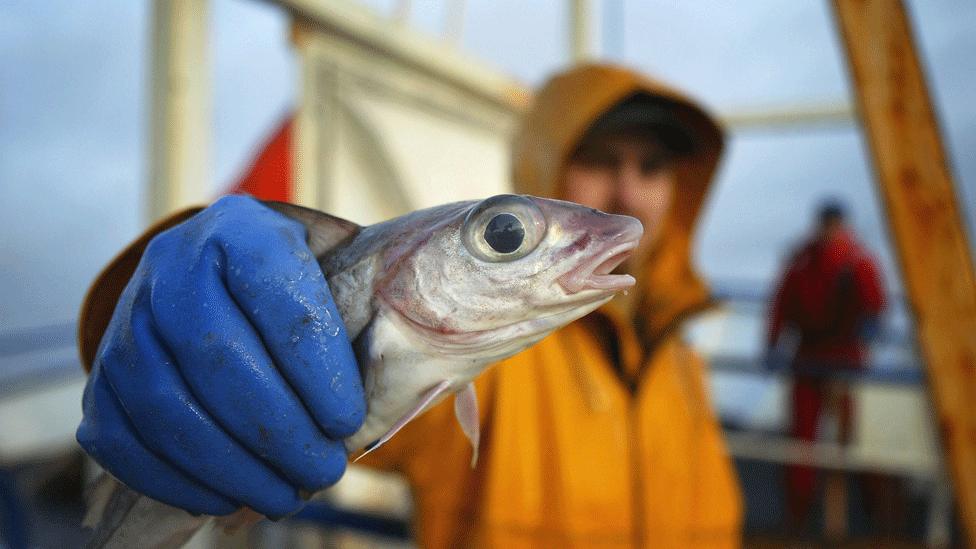Scots fishermen slam EU call for access to UK waters
- Published
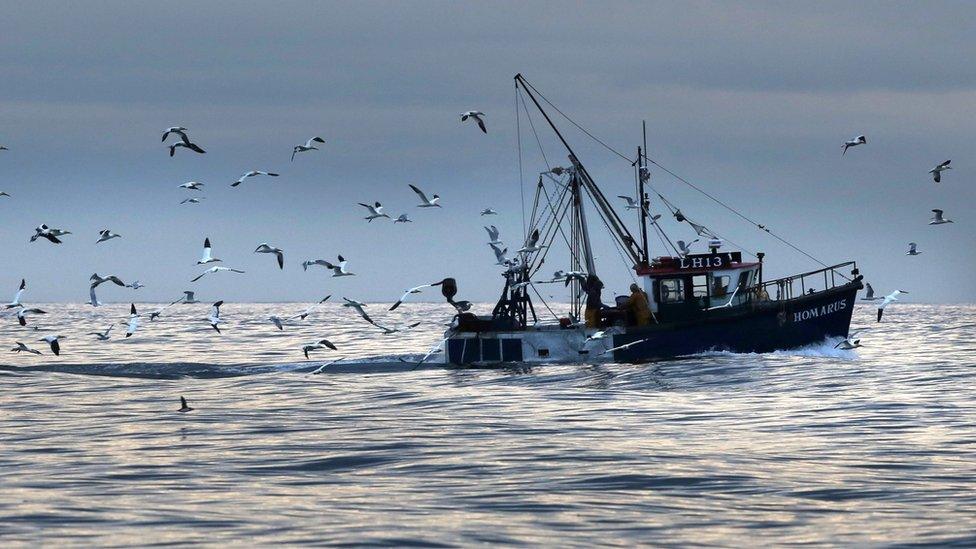
Scottish fishermen have hit out at the EU after the body's guidelines for the next phase of Brexit talks called for continued access to fishing grounds.
The EU's draft guidelines for the forthcoming talks aim for "existing" access to waters to be maintained.
But Scottish fishing groups call this "arrogant, absurd and nonsensical".
Prime Minister Theresa May said "reciprocal access" would be discussed, but said there would need to be "a fairer allocation" for UK fleets.
The UK and European leaders are gearing up for a fresh round of Brexit talks, with both sides setting out their vision of their future relationship.
The EU side has now published a draft of its negotiating guidelines, which must be signed off by the leaders of the 27 remaining EU states at a Brussels summit on 22 March.
This document includes a section on "work towards a free trade agreement". It notes that "such an agreement cannot offer the same benefits as membership and cannot amount to participation in the singe market".
It says a free trade agreement should address "trade in goods, with the aim of covering all sectors which should be subject to zero tariffs and no quantitative restrictions", adding that "in this context, existing reciprocal access to fishing waters and resources should be maintained".
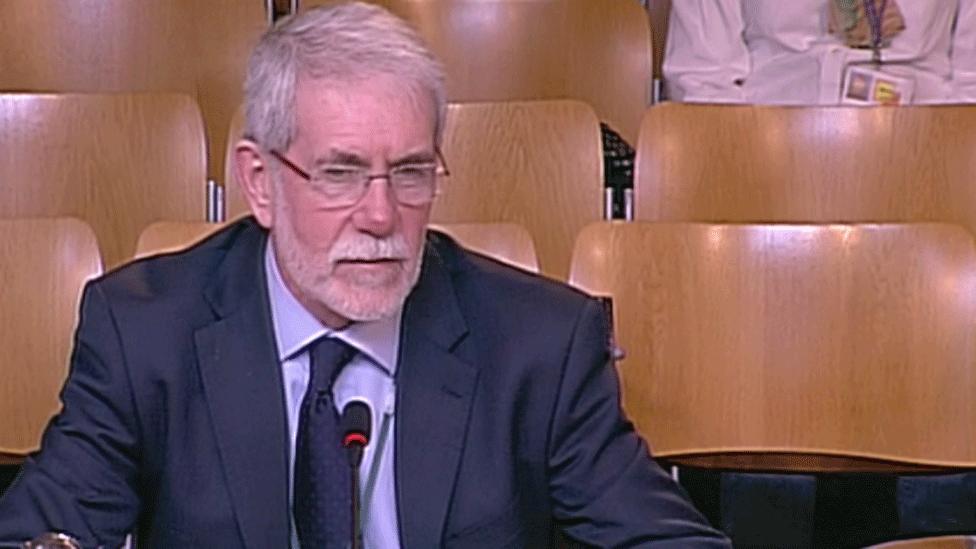
Bertie Armstrong said the EU's proposal "must be rejected"
Simon Collins from the Shetland Fishermen's Association called the EU proposal "completely unacceptable".
He said: "As an opening gambit goes, the EU's stance is arrogant, absurd and nonsensical. The UK will become an independent coastal state on 29 March 2019, and we insist that it exercises its rights and responsibilities as such immediately.
"No coastal state currently offers the EU guarantees of access to its waters and natural resources, and neither should we."
Bertie Armstrong, chief executive of the Scottish Fishermen's Federation, said existing reciprocal access should not be continued.
He said: "This latest gambit must be rejected. When we leave the EU we leave the Common Fisheries Policy and assume our rightful place at the table as a coastal state.
"Each year we will then decide who catches what, where and when. The days of the EU taking 60% of our fish are coming to an end. The sea of opportunity is within reach."
Tusk on Brexit: 'We will be drifting apart'
A UK government spokeswoman said: "This is a draft text that has not been formally published but has been circulated to the EU27 for comment.
"The Prime Minister reiterated in her Mansion House speech that we are leaving the Common Fisheries Policy, and the UK will regain control over our domestic fisheries management rules and access to our waters.
"The arrangements we then agree with the EU, and with other partners, are for negotiation."
UK Environment Secretary Michael Gove has previously confirmed that some foreign trawlers will still have access to UK waters after Brexit.
This has led Scottish Environment Secretary Fergus Ewing to urge UK ministers not to "trade away access to Scotland's waters" post-Brexit.
'Work together'
In her speech setting out her government's position on Brexit, Mrs May said the UK would be "leaving the Common Fisheries Policy", but said governments should "continue to work together" over stocks and access.
The prime minister said: "The UK will regain control over our domestic fisheries management rules and access to our waters.
"But as part of our economic partnership, we will want to continue to work together to manage shared stocks in a sustainable way and to agree reciprocal access to waters and a fairer allocation of fishing opportunities for the UK fishing industry.
"And we will also want to ensure open markets for each other's products."
The EU guidelines repeat warnings about "cherry-picking" in the post-Brexit trade agreement, and note that leaving the single market and customs union "will have negative economic consequences".
The document says the "four freedoms" of the single market - the free flow of goods, services, money and people - are "indivisible" and "there can be no 'cherry-picking' through participation based on a sector-by-sector approach, that would undermine the integrity and proper functioning of the single market".
Unveiling the plans in Luxembourg, EU Council President Donald Tusk said the EU "does not want to build a wall", but said Brexit means "we will be drifting apart".
- Published7 March 2018
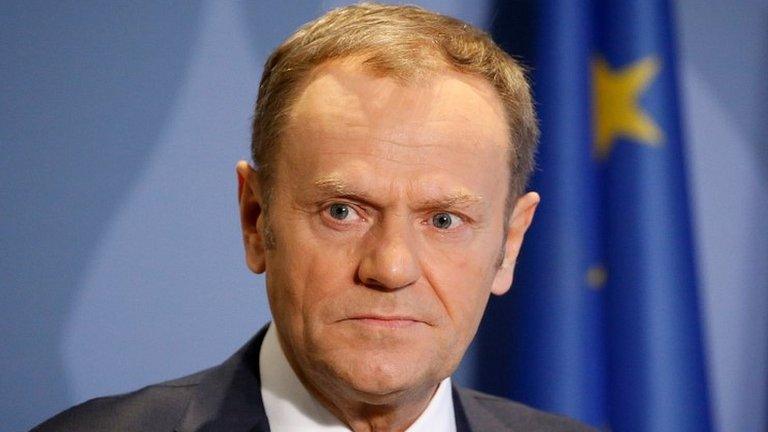
- Published3 August 2017
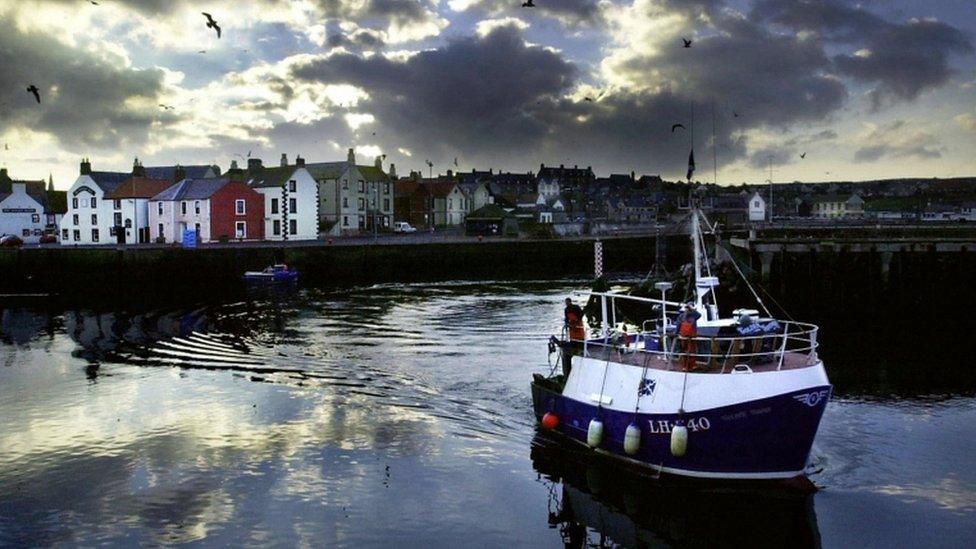
- Published28 July 2016
